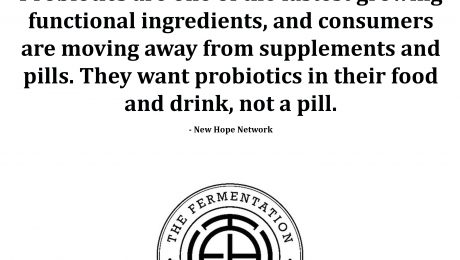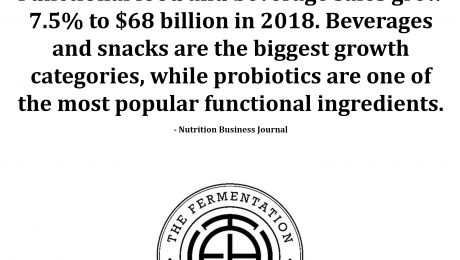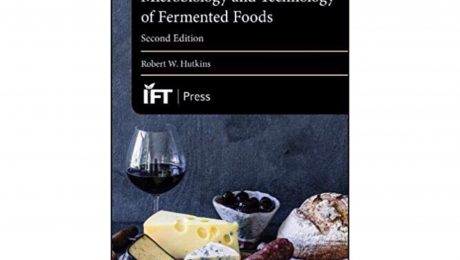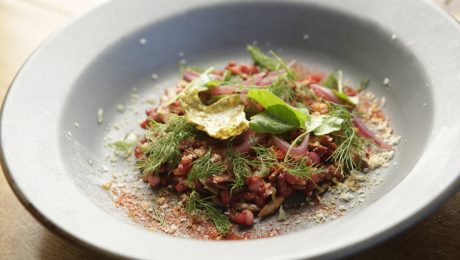Functional Food & Beverage Sales Grew 7.5% to $68 Billion in Sales
Functional food and beverage sales grew 7.5% in 2018 to $68 billion in sales. Probiotics are one of the fastest growing functional ingredients, and consumers are moving away from supplements and pills. They want probiotics in their food and drink.
- Published in Business
Danone Releases Collection of 1,800 Yogurt Strains to Celebrate 100th Anniversary
To celebrate its 100th anniversary, Danone is releasing its collection of 1,800 yogurt strains to the public. In a press release, Danone said the announcement coincides with Danone’s “commitment to promoting open science, a movement toward openness in scientific research, sharing and development of knowledge through collaborative networks.” Danone would like others to use the strains for research purposes. The French company is also granting access to its current collection of 193 lactic and bifidobacteria ferment strains deposited at the National Collection of Cultures of Microorganisms, held in the Biological Resource Center of Institut Pasteur in Paris. The first Danone yogurt was made by Isaac Carasso in 1919 in Barcelona. Barcelona’s own children suffered from poor gut health, and he was inspired by research from the Institute Pasteur that detailed the role of ferments in gut and overall health. Barcelona began selling his first yogurts, which were fermented with lactic ferments, in Barcelona’s pharmacies.
Read more (Danone)
Functional Food & Beverage Sales Growing, Probiotics Popular Ingredient
Functional food and beverage sales grew 7.5% to $68 billion in 2018. Beverages and snacks are the biggest growth categories, while probiotics are one of the most popular functional ingredients.
Nutrition Business Journal
- Published in Food & Flavor
6 Takeaways for the Fermentation Industry from Expo West
The fermentation industry is on the cusp of a renaissance. Engaged consumers are seeking functional food and drink with health benefits. And fermented products provide the nutritional value and unique flavors today’s consumers crave.
Staff at The Fermentation Association attended Natural Products Expo West in Anaheim, Calif. this month. Expo West is the world’s largest organic and natural healthy products event, and we spent four days with 88,000 other attendees listening to industry experts in education sessions and meeting fermented food and beverage brands on the show floor.
Here are six takeaways from Expo West for the fermentation industry:
- Natural Products are King. Natural food and beverages grew 6.6 percent in 2018, for a total of $152 billion in sales, according to info from the Nutrition Business Journal. The category is growing so much that organic supply is lagging behind consumer demand. Meanwhile, for the first time in history, the conventional food and beverage category began to shrink last year.
- Major Focus on Gut and Microbiome Health. Once terms only used by scientists, prebiotics and probiotics are at the forefront of consumer’s grocery list. Digestive health is critical for modern consumers, as more nutritionists focus on the gastrointestinal tract’s critical immune system support. Consumers want food and drinks that nourish their microbiome. Sales numbers show people are moving away from purchasing pills and supplements to aid their gut; they’re instead looking for prebiotics and probiotics in actual food.
- Ancient Foods are Experiencing a Revival. The future of food is in practices of the past. From turmeric, ashwagandha, ghee and fermentation, the foods of our ancestors are back on our plates. These old-world cooking styles and ingredients are standing the test of time and coming back in modern cuisine.
- Industry is Selling to Educated Consumers. Today’s consumers know more about the food they eat than ever before. Consumers are studying ingredient lists, seeking product sources and researching brands. Clean food and clean labels are not a trend; they’re a movement. People are becoming more aware of the dangers of eating processed food. They want nutritious ingredients from ethical brands. The functional health benefits of fermented products are piquing consumer interest.
- Snacking Trumps Mealtime. Snacking today is a $1.2 trillion-dollar industry. The modern consumer is busy, and convenience food readily accessible in a grab-and-go format is a grocery store staple. Snacking in 2019 is not filling up on a soda and a bag of fried chips. Consumers want healthy, fresh snacks, especially refrigerated snacks in the produce aisle. This is great news for fermented brands. Grabbing a bottle of kombucha or kefir and a bag of snacking pickles or miso soup fits into the convenient dining lifestyle.
- Brands Need More Plant-Based Products. A major shift in food philosophy, more consumers are buying plant-based products – whether or not they’re vegetarian or vegan. Plant-based options are becoming tastier and readily available. Brands are experimenting with fermenting vegetables for plant-based cheeses, spreads, sauces and drinks.
It’s an exciting time for fermented food and beverage producers. The aromatic, tangy flavors and healthy, live bacteria in fermented products are qualities propelling fermentation to become one of the most popular food categories.
- Published in Business
Meeting Growing Demands for Fermentation Expertise, Classic Fermentation Textbook Gets New Edition
“To meet the growing demand for fermentation expertise within the food industry,” an updated edition of the textbook “Microbiology and Fermentation of Foods“ has been released by author Dr. Robert Hutkins, a professor at the University of Nebraska-Lincoln and member of the International Scientific Association for Probiotics and Prebiotics. The book was first released in 2006 during a time Hutkins said fermentation was considered an old science, “with nothing new to be learned.” There were few universities offering specific fermentation programs. But recent microbiological advancements — and growing consumer interest in fermented foods — means more people are seeking fermentation expertise. The new edition includes chapters in distilled spirits, cocoa, coffee and cereal products. Hutkins notes scientists across multiple fields are studying fermentation today, from nutritionists to biochemists to archaeobiologists.
Read more (International Scientific Association for Probiotics and Prebiotics)
- Published in Science
Probiotic-Rich Foods Battle Depression, Study Concludes
“The right kind of diet may give the brain more of what it needs to avoid depression, or even to treat it once it’s begun,” writes the Wall Street Journal. Research from Australia’s Deakin University found, for people battling depression, an improved diet resulted in”significantly happier moods than those who received social support.” A bad diet affects our microbiome (“the trillions of micro-organisms that live in our gut”) altering the production of serotonin (a neurotransmitter). Research says a balanced Mediterranean-style diet provides the nutrition our brain needs. Research lists probiotic-rich food with live bacteria and yeasts (yogurt, sauerkraut, kefir, kimchi, fermented veggies) to replenish the good bacteria in our microbiome.
Read more (Wall Street Journal)
- Published in Science
Fermentation Dominating 2019 Food Prediction Lists
Fermentation is dominating 2019 food prediction lists. The New York Times says fermented foods and fermented drinks will rule in 2019. The year’s flavor profile will be “Sour and funky, with shades of heat,” melding fermented ingredients with millennial taste buds. Probiotics and prebiotics will continue to reign as consumers focus on gut health. “As the obsession with digestive health dovetails with the fascination for fermenting, kimchi, sauerkraut and pickled things will work their way into new territory. Smoothies with kefir will be popular, and kombucha will show up in unexpected places like salad dressings,” the article continues. What will you be eating in 2019?
Read more (New York Times)
- Published in Business
Fermented Food Part of “Secret to Complexion Perfection”
Consider marketing fermented food and drink products as not just good for the gut but good for the skin. The New York Times calls the gut “the secret to complexion perfection,” and highlights the beauty benefits of a diet full of fermented foods. Though probiotics marketed specifically for skin health are selling out, doctors say supplements alone won’t help — diet is key. Carla Oates, known as the Beauty Chef, wrote a cookbook encouraging what she calls “gut weeding and seeding and feeding,” praising a diet of fermented foods like carob and sauerkraut.
Read more (New York Times)
- Published in Food & Flavor, Health
Probiotics Build Stronger Bones
Probiotics are good for the bones, a new study finds. Older women who took probiotics had less bone weakening than women who did not take probiotics. Fermented foods rich in probiotics include pickled veggies (sauerkraut, pickles, kimchi), yogurt, kefir, kvass and natto.
Read more (New York Times)
- Published in Science
The Novel Taste of Old Food
Can you guess what’s in this picture? Innovative chefs experiment with fermented dishes at restaurants like GYST, Baroo, Blue Hill and Boudin Bakery. The NY Times highlights chefs that are reusing mold cultures, cooking with 300-year-old starters and simmering soup broth batches that date back to World War II.
- Published in Food & Flavor










